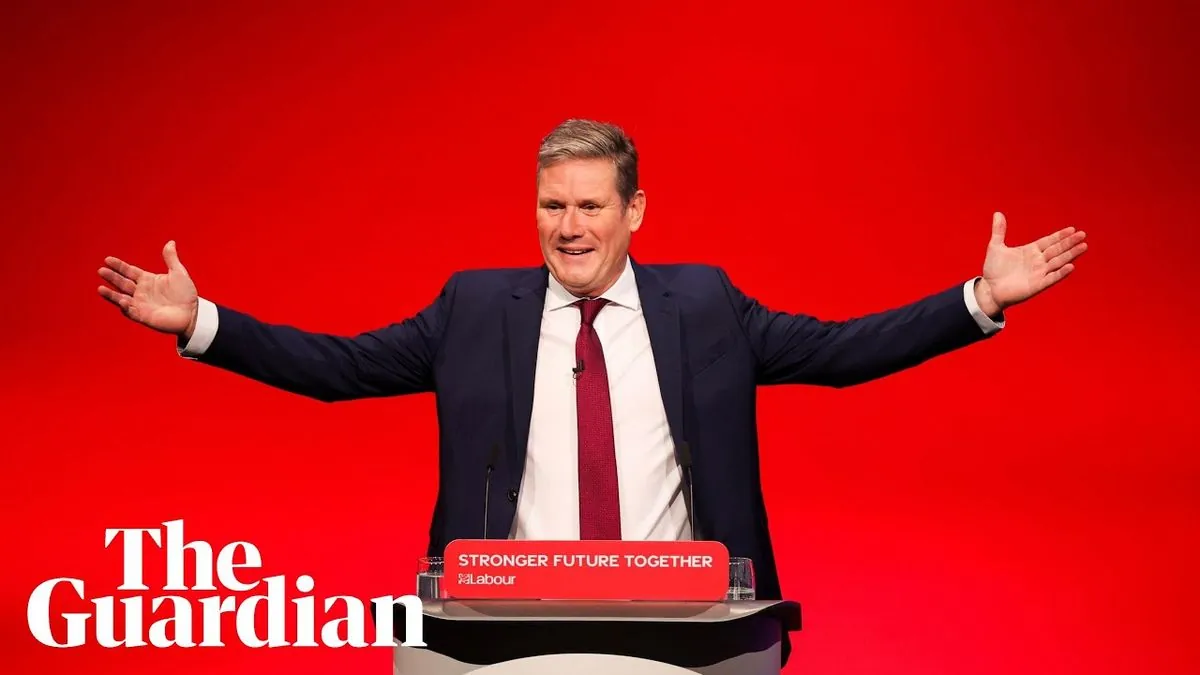Starmer's Sober Message: Labour's New Approach Raises Questions
Labour leader Keir Starmer prepares to deliver a sobering speech, contrasting with past optimism. His approach and financial ties face scrutiny, echoing challenges from Labour's previous ascent to power.

Keir Starmer, the Leader of the Labour Party, is set to deliver a speech that has been extensively previewed, potentially rendering the actual delivery unnecessary. The central theme, as widely reported, suggests that conditions may deteriorate before improvement occurs.
This somber message marks a stark contrast to Labour's 1997 campaign, which utilized D:Ream's optimistic anthem "Things Can Only Get Better." That campaign, led by Tony Blair, resulted in a landslide victory, ending 18 years of Conservative rule.
Starmer's approach appears to be preparing the public for potential challenges, possibly including tax increases in the upcoming autumn Budget. He argues that the previous administration has left behind significant issues that only he can address.

However, this stance may be perceived as hubristic. It's reminiscent of Blair's early days in office when Labour presented itself as morally superior to the Conservatives, who had been plagued by allegations of "Tory sleaze." Yet, within months of taking office in 1997, Labour faced its own scandal involving a £1 million donation from Formula 1 chief Bernie Ecclestone, linked to tobacco advertising policies in the sport.
Similarly, Starmer now faces questions about his relationship with donors. Lord Waheed Alli, his largest personal contributor, reportedly received a temporary pass allowing unrestricted access to 10 Downing Street, a privilege typically reserved for staff and family members.
While the Prime Minister might argue that he can invite anyone into his residence, which also serves as a government office, the public may be more concerned about the purpose of Lord Alli's donations. In addition to £500,000 given to the party, he provided nearly £55,000 to Starmer for various personal expenses, including clothing and accommodation during the campaign.
"Could he not afford to buy his own suits and spectacles or were they designer wear, beyond the reach of most people's pockets?"
It's worth noting that the Leader of the Opposition receives a substantial salary, and official costs are covered by taxpayers. This level of personal donation raises eyebrows, especially given Starmer's emphasis on representing "working people."
Furthermore, Rachel Reeves, the Shadow Chancellor, has also received significant financial contributions and gifts. As Labour leaders critique their opponents, they should be mindful of potential inconsistencies in their own financial practices.
The situation serves as a reminder of the complex relationship between politics and money in the UK, where donations from wealthy individuals and organizations have long been a part of the political landscape. However, it also underscores the importance of transparency and adherence to parliamentary rules on declaring financial interests.
As Starmer prepares to deliver his message of necessary hardship before improvement, he may find that maintaining a claim to moral superiority is more challenging than anticipated. The scrutiny faced by Labour today echoes the party's experiences from its previous rise to power, highlighting the enduring nature of political accountability in British democracy.


































